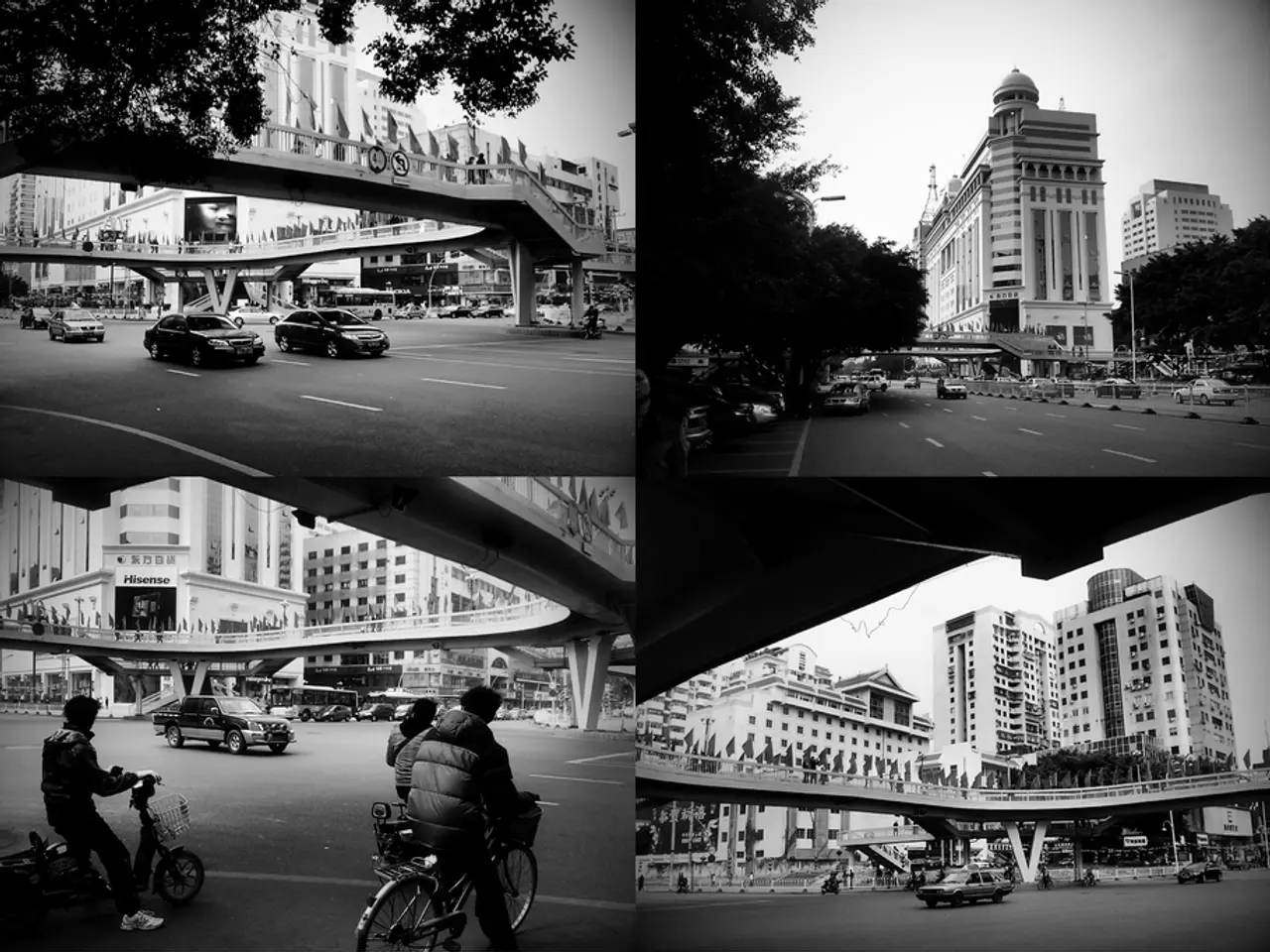City Council in Las Vegas Allocates $20 Million Toward Partnership for F1 Grand Prix Event
The Las Vegas Convention and Visitors Authority (LVCVA) has announced that the 2024 Formula 1 Las Vegas Grand Prix generated an estimated economic impact of approximately $934 million. This figure reflects both direct and indirect spending impacts, with the event attracting around 175,000 unique visitors and 306,000 total attendees over the three-day event [1].
However, it's important to note that this $934 million figure represents gross spending and does not fully capture net benefits. Some businesses, especially mid-range hotels, off-Strip accommodations, local dining, and smaller businesses, reportedly faced reduced customer traffic and revenue declines during the event weekend [1][3]. Some local analyses and lawsuits from businesses claim that the race caused millions in losses due to tourist displacement and fewer non-Formula 1 customers [3]. These losses are at least partially factored into economic impact models but remain a point of debate among economists and local stakeholders [3].
The LVCVA has invested heavily in sponsoring the race, committing an estimated $51.5 million through 2027. This includes $10 million annually for 2025 and $20 million for 2026-2027 [3][5]. LVCVA CEO Steve Hill noted that the increase per year comes primarily from the enhanced sponsorship, not additional expenses [2].
The success of the 2021 F1 Las Vegas Grand Prix led to an agreement between Las Vegas and F1 to extend their partnership to at least 2027 [4]. The LVCVA generates around $350 million annually from hotel room taxes paid by visitors, in addition to revenue from Convention Center rentals ($34.6 million) and monorail operations ($23 million) [2].
The ongoing construction of the racecourse along Las Vegas Boulevard is improving, with more workers this year helping reduce lane closures by three weeks, down from about eight weeks last year [2].
Looking ahead, the LVCVA may consider a longer-term deal beyond 2027, depending on several factors [3]. While the net economic benefit is somewhat lower and contested, luxury casinos on the Strip benefited most, whereas some smaller and mid-range businesses experienced downturns during the weekend [1][3]. The LVCVA anticipates bigger economic impacts for upcoming races, suggesting ongoing growth potential despite these mixed effects [1][3][5].
References:
- Las Vegas Review-Journal
- Las Vegas Sun
- Las Vegas Business Press
- Las Vegas Review-Journal
- Las Vegas Business Press
- The Formula 1 Las Vegas Grand Prix, a significant event in casino-and-gambling culture, attracted approximately 175,000 unique visitors and 306,000 total attendees in 2024, contributing to an estimated economic impact of $934 million.
- Amid the economic benefits reported, some businesses, particularly mid-range hotels, off-Strip accommodations, local dining, and smaller establishments, reported revenue declines during the event weekend.
- The LVCVA, recognizing the event's potential, has invested $51.5 million through 2027 in sponsoring the Grand Prix, with the investment increasing annually, primarily due to enhanced sponsorship.
- The success of the 2021 race led to an agreement between Las Vegas and F1 to extend their partnership to at least 2027, with luxury casinos on the Strip benefiting the most from the event.
- upcoming races are anticipated to generate bigger economic impacts, as the LVCVA considers a potential longer-term deal beyond 2027, despite some mixed effects on local businesses.
- While sports-betting and auto-racing events like the Grand Prix are popular in Las Vegas, it's crucial to consider the impact on various sectors of the industry, including transportation and the automotive landscape.




